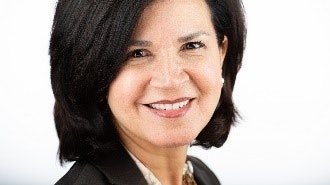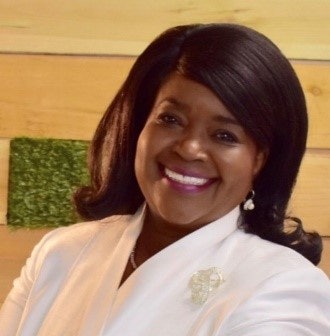In the summer of 2020, Dr. Alex Johnson, Cuyahoga Community College (Tri-C)’s president, decided that the college needed to take a public stand against systemic racism in America. Johnson charged a team of leaders, representing faculty, staff, and students from across the  Dr. Matthew Carey Jordan
Dr. Matthew Carey Jordan
SRJ: Mission and Values
Tri-C’s Stand for Racial Justice seeks to advance racial equity and healing at Cuyahoga Community College and across Northeast Ohio through education, dialogue, and action. We stand together in the name of justice for all, committed to reconciling the facts of race in America in a spirit of inquiry rather than indoctrination. We recognize the complexities involved in addressing racial injustice and resolve to engage in these difficult conversations within a framework of civility, without losing sight of the evident realities of systemic racism and structural inequities in our community and our nation.
It is worth taking a moment to note three features of this statement. First, SRJ looked outward as well as inward, seeking to impact the whole of Northeast Ohio rather than merely the college community. Second, SRJ is committed to offering something more than “mere talk.” Third, SRJ emphasizes the reality that race in America is a complex and sometimes subtle matter; that civility is important; and that the SRJ approaches salient questions without claiming to know all the answers in advance.
The good will the SRJ has engendered to date can presumably, and at least in part, be attributed to its commitment to approaching contentious issues “in a spirit of inquiry rather than indoctrination.” SRJ’s goal has been to strike a balance between two opposing errors: indecisiveness, on the one hand, and stridency and closed-mindedness, on the other. The SRJ seeks to inform action, and to ensure that action is wisely taken and grounded in serious questions addressed thoughtfully from diverse perspectives.
SRJ: Structure and Task Force Charges
Once the SRJ leadership team had clarified its mission, its next step was to create a structure that would enable it to work effectively and  Dr. Magda Gómez
Dr. Magda Gómez
SRJ Task Force #1 was created to address the college’s culture, values, training, and education. The task force’s charge includes to: ensure a college-wide atmosphere of inclusivity and respect by reviewing and revising policies and guidelines for student organizations, academic departments, and programs; enhance and promote training for students, faculty, and staff, including workshops on unconscious bias and microaggressions. The task force also has a goal to create and implement new programming for the Public Safety Center of Excellence and devise strategies for integrating the discussion of racial justice into existing curricula.
SRJ Task Force #2 focuses on college-wide events and activities. It assists with the development, enhancement, and promotion of programming sponsored by various diversity and equity groups.
SRJ Task Force #3 is outward-facing. It provides leadership for advocacy and calls to action, which include support for Tri-C students, faculty, and staff of color. This task force also supports voter registration campaigns and works to support local minority-owned and operated businesses. Further, it coordinates with community partners to facilitate, support, and promote existing initiatives designed to engage the greater Cleveland community with issues of racial equity and healing, and sponsors public forums and debates featuring diverse perspectives on matters pertaining to racial justice and social policy.
SRJ projects and activities
While space precludes an exhaustive overview of SRJ’s work in the first year of its existence, a few representative examples of that work can be viewed at https://www.tri-c.edu/stand-for-racial-justice/past-events.html. Readers interested in more information and examples are invited to consult the Stand for Racial Justice website https://www.tri-c.edu/stand-for-racial-justice/about.html.
No one working in the areas of racial equity and healing denies that much remains to be done. Tri-C has reason to be encouraged with the  Dr. JaNice Marshall
Dr. JaNice Marshall
Dr. Matthew Carey Jordan is the Jack, Joseph and Morton Mandel Dean and Chair for the Humanities at Cuyahoga Community College.
Dr. Magda Gómez serves as executive director, diversity & inclusion at Cuyahoga Community College where she works on multiple initiatives related to diversity, equity and inclusivity awareness and education.
Dr. JaNice Marshall serves as collegewide vice president for access & community connections at Cuyahoga Community College. Marshall is a teaching professor and doctoral cohort coordinator for Kansas State University’s John E. Roueche Center for Community College Leadership.
The Roueche Center Forum is co-edited by Drs. John E. Roueche and Margaretta B. Mathis of the John E. Roueche Center for Community College Leadership, Department of Educational Leadership, College of Education, Kansas State University.
This article originally appeared in the February 17, 2022 edition of Diverse. Read it here.















